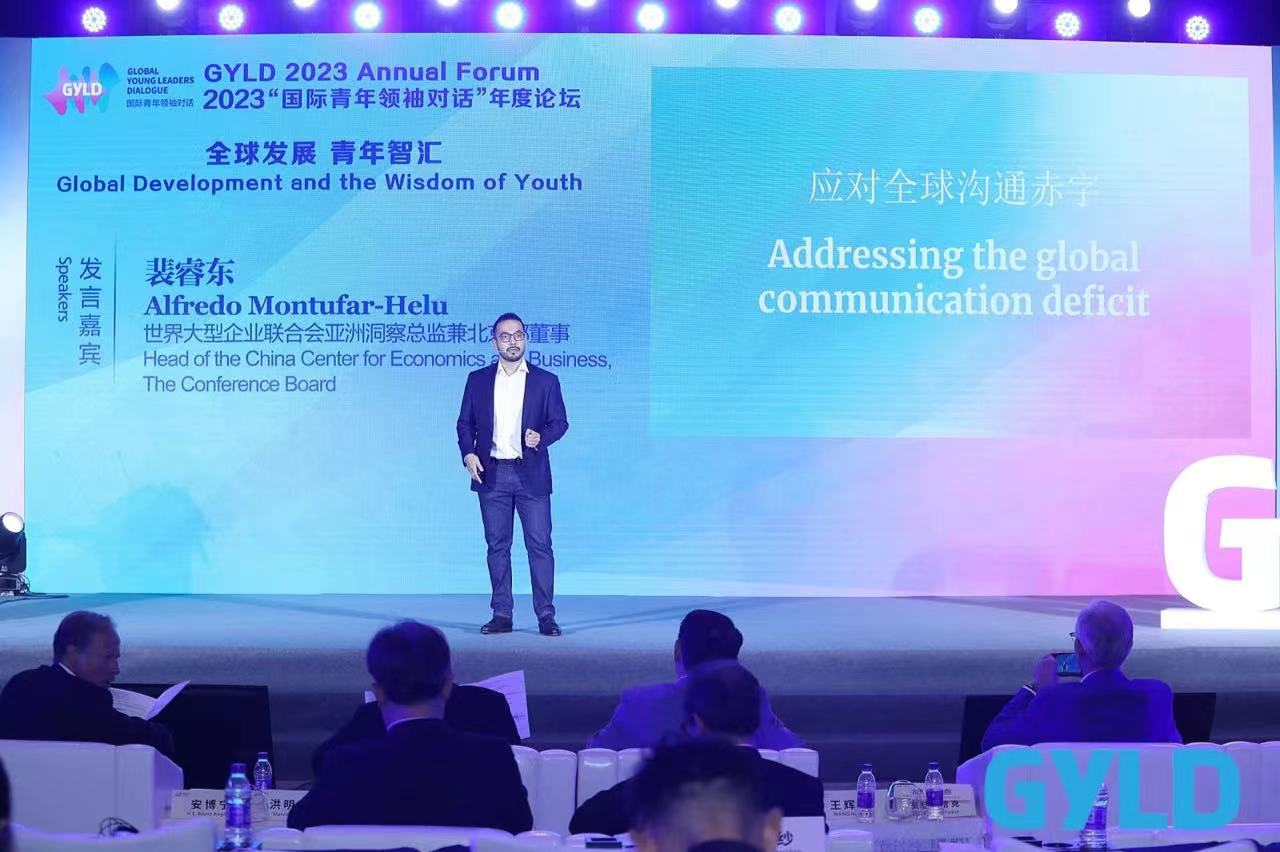【GYLD Talk 2023】Alfredo Montufar-Helu:Global Communication Deficit
【GYLD Talk】Addressing the Global Communication Deficit

You know what? According to the 2023 SDG Progress Report by the United Nations that they just released last week, progress on over half of the targets that must be met to achieve the 2030 agenda is weak. For 30 percent of the targets, progress has stalled or gone to reverse.
Now there are several reasons why, the most important being, of course, the impact of the COVID-19 pandemic. Because it exacerbated the structural imbalances across economies, leading to a rise in poverty, in unemployment, debt levels, wealth inequality, and also, to a deterioration of global health. There is also climate change, and we have been living through its consequences over the past weeks. I think it is no exaggeration to say that we have seen more inclement weather and more natural disasters over the past few years when compared to the last decades.
But you see, the most important reason in my view is that the world is suffering from a severe case of communication deficit, which is, at the same time, a symptom and a driver of the deterioration of the geopolitical environment.
Tensions and conflicts between and within nations are rising, leading to the unfortunate loss of human life and making it harder for governments to come together to find solutions for the global challenges we are facing. Challenges that do not care about national borders or about politics or about ideologies and certainly not about political systems. So, when I think about the role that the younger generations can play to contribute sustainable development, it has to be first and foremost overcoming the communication deficit that is disrupting global governance.
But how to do this?
In my role as the head of the China Center for Economics and Business, I dedicate a large part of my time every day to addressing communication and understanding gaps. I do this internally with my team, because being a Mexican citizen leading a global think tank in China, well, as you can imagine, there is just no shortage of different opinions. But my task is to lead my team to success. So therefore, communication is key. Together with my team, we work together to address understanding gaps, communication gaps externally, especially between China and the world. And we do this through objective and rigorous, impartial analysis that is cognizant and respectful of the socioeconomic, cultural and political particularities of different countries.
So, when I think about my experience, I would post three recommendations for the younger generations to address this global communication deficit.
First, you don’t have to hear, you have to listen and you have to listen very carefully.
Second, if you are willing to listen carefully to others’ opinions, that’s good, but it is not enough. You have to acknowledge them. Recognize that different people think differently, and seek to understand why.
And finally, if you listen carefully, and if you acknowledge other people’s views, then you can generate consensus. And consensus builds trust. It creates ownership, builds empowerment and instills commitment. And this is precisely what we need if the world is to achieve its global development agenda.
Thank you.
About Speaker
Recommended Articles
- guangdong
- "Focusing on Global Development: Shaping our Future with the Power of Young People"-2023 “Global Young Leaders Dialogue (GYLD)” Annual Forum successfully held
- Apply Now!GYLD Annual Forum 2024
- Apply Now! Young Leaders at the GYLD Annual Forum 2025
- 【GYLD Talk 2023】Olesia Ermakova: Trying a Zero Waste Lifestyle












 CHINESE
CHINESE